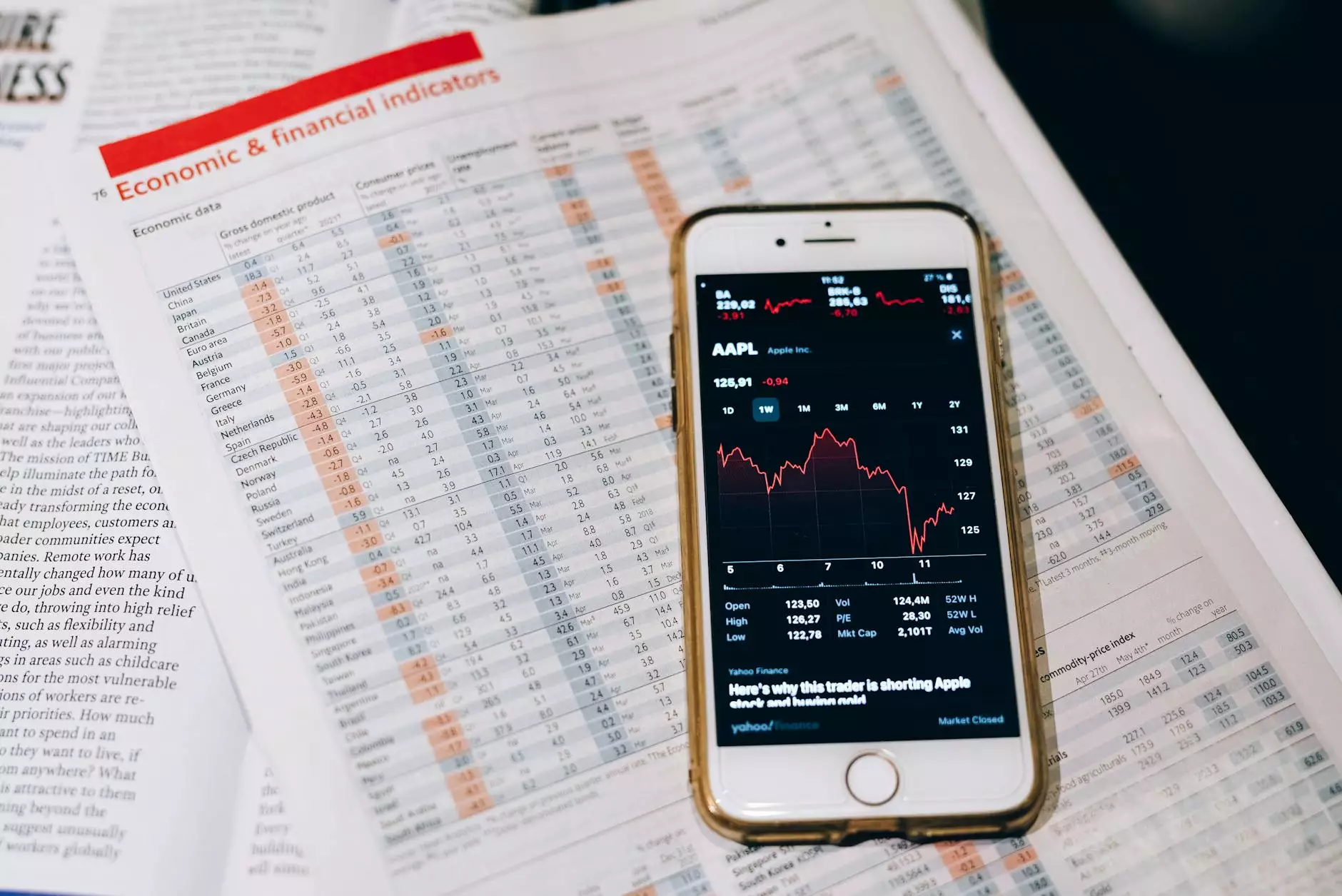The Ultimate Guide to Trading Bullion

Understanding Bullion
Bullion is a term that refers to precious metals that are traded in bulk on the commodity markets. This includes metals such as gold, silver, platinum, and palladium. These metals can either be minted into coins or cast into bars, and they are valued based on their weight and purity rather than their form. Trading bullion has gained popularity among investors seeking to protect their wealth and diversify their investment portfolios.
The Benefits of Trading Bullion
Engaging in trading bullion provides numerous advantages, making it an attractive option for investors:
- Hedge Against Inflation: Precious metals like gold and silver often retain their value during inflationary periods.
- Liquidity: Bullion can be easily bought and sold, providing high liquidity in the market.
- Intrinsic Value: Unlike stocks or bonds, bullion has intrinsic value due to its physical properties.
- Portfolio Diversification: Including bullion in an investment portfolio can minimize risk and improve overall returns.
- Global Acceptance: Precious metals are recognized and valued worldwide, providing ease of trading.
Types of Bullion Available for Trading
Investor interest in trading bullion encompasses several key types of precious metals:
Gold Bullion
Gold is perhaps the most recognized form of bullion. It is praised for its durability and has been used as a form of currency for centuries. Investing in gold can be done through:
- Gold Bars: Typically larger in size and more cost-effective for bulk investment.
- Gold Coins: Often carry numismatic value and can be easier to trade.
Silver Bullion
Silver serves not only as a form of investment but also has industrial applications. Trading silver bullion can be a profitable venture:
- Silver Bars: Commonly traded in various sizes for direct investment.
- Silver Coins: Similar to gold coins, they may have added collectible value.
Platinum Bullion
Platinum is rarer than gold and has industrial significance, particularly in automotive catalysts. It offers unique investment opportunities when trading bullion:
- Platinum Bars and Coins: Available from various mints, often sought after for their value and scarcity.
Palladium Bullion
Palladium has surged in popularity due to its use in the automotive industry and its limited supply. Investing in palladium can include:
- Palladium Bars: A favored option for larger investments.
- Palladium Coins: Often collectable and easily tradable in the market.
How to Start Trading Bullion
Getting involved in trading bullion requires a strategic approach:
1. Educate Yourself
Understanding the fundamentals of the bullion market is crucial. Familiarize yourself with market trends, the types of metals, and factors affecting prices.
2. Select a Reputable Dealer
Choose a trusted dealer to ensure fair prices and reliable transactions. Look for established dealers like DonsBullion.com, known for quality and service.
3. Determine Your Investment Strategy
Decide whether you want to trade short-term, long-term, or a mix of both. Your strategy will influence your buying and selling decisions.
4. Track Market Performance
Constantly monitor market data and news. Many factors can influence bullion prices, including economic reports, geopolitical events, and changes in consumer demand.
Trading Strategies for Bullion
Several effective strategies can be employed when trading bullion:
1. Buy and Hold
This long-term strategy involves purchasing bullion and holding it until its value appreciates significantly. It’s a preferred method for those who believe in the long-term value of precious metals.
2. Dollar-Cost Averaging
This strategy involves consistently investing a fixed amount into bullion at regular intervals, regardless of market conditions. This approach can mitigate the effects of volatility.
3. Arbitrage
This more advanced strategy involves simultaneously buying and selling bullion across different markets to profit from price discrepancies. It requires market knowledge and fast execution.
4. Swing Trading
Involves taking advantage of short-term price movements in the bullion market. Traders may hold positions for a few days to weeks.
Conclusion
In summary, trading bullion offers a variety of opportunities for investors looking to diversify their investment portfolio or protect their wealth. Understanding the intricacies of the bullion market, the types of available metals, and effective trading strategies is essential for success. With platforms like DonsBullion.com, investors can gain access to a reputable source for buying and selling precious metals, allowing them to make informed investment decisions.
FAQs About Trading Bullion
What is the best bullion to invest in?
This depends on individual goals. Gold is often seen as the safest investment, while silver offers more volatility. Platinum and palladium have unique industrial uses, making them attractive investments as well.
How do I store my bullion safely?
It’s important to choose secure storage options, whether it’s a safe at home or a safety deposit box at a bank. Some investors opt for professional storage services that offer insurance for their holdings.
Can I trade bullion online?
Yes, many dealers offer online platforms for buying and selling bullion. Ensure that the platform is secure and reputable to protect your investment.









